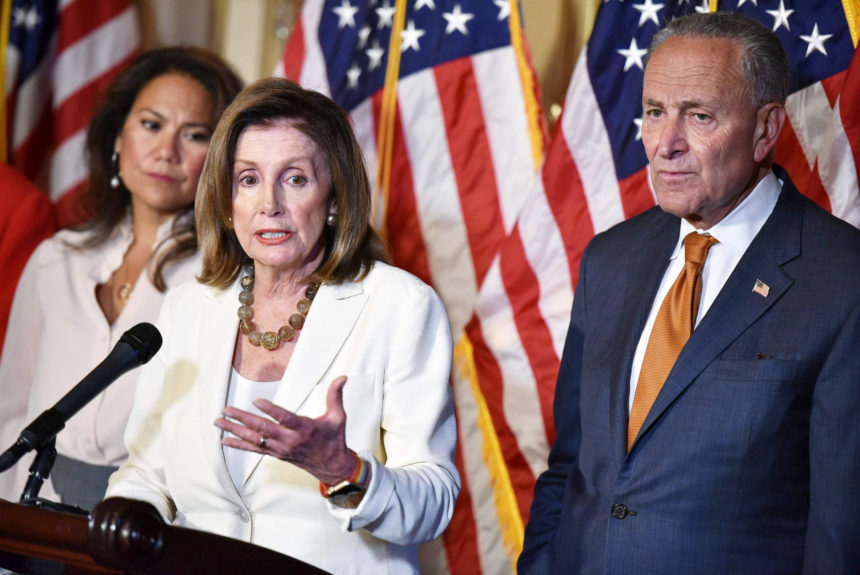Successful American government depends on an active Congress. All spending bills must originate in the House, for example, and all presidential cabinet positions must be approved by the Senate. Congress should be deliberating and passing laws, and then has a key oversight role to ensure those laws are faithfully executed.
But there is a fine line between oversight and grandstanding. Too often in recent years, lawmakers have enacted unclear laws intended to reform huge swaths of the American economy. ObamaCare, for example, was peppered with more than 700 vague references to things the secretary of health and human services “shall” or “may” do. For example, the law states: “The Secretary shall develop oral healthcare components that shall include tooth-level surveillance.”
>>>READ: Progressives are Greenwashing Socialism
Lawmakers probably didn’t want a regulator reviewing your bi-annual cleaning, but maybe they did since that’s what the law seems to require. Chances are that what they really wanted was the chance to call people up to Capitol Hill for hearings, so they can rail at companies for not properly surveilling your teeth. That way, lawmakers can seem to be doing something about health care without actually considering whether their proposals are necessary or even possible.
That brings us to “greenwashing,” the allegation often made by environmentalists and politicians on the Left that companies are falsely claiming to protect the environment when instead they are hurting it. The reality is that those lawmakers themselves often do just that by proposing unworkable policies they have no intention of imposing.
The leading example is the Green New Deal, a non-binding resolution first introduced in Congress in 2019. Among other things, the resolution calls for: “meeting 100 percent of the power demand in the United States through clean, renewable, and zero-emission energy sources” by the year 2030. The resolution gained the support of “more than 100 co-sponsors in Congress and attracted a number of Democratic presidential candidates during the election.”
But when it came time to enact a law, the proposal earned exactly zero Senate votes. Some 43 Democratic Senators voted “present” so they wouldn’t have to present a position on the proposal. Lawmakers keep going back to the well, though, reintroducing the measure in the House of Representatives last year. “The Green New Deal outlines a pathway for a full transition to 100 percent renewable electricity at the federal level,” Congressman Joe Neguse claimed in a news release.
This claim is by definition greenwashing. There is no “pathway” to 100 percent renewable power by the year 2030. There simply aren’t enough batteries available to store 100% of the energy we need. Even if there were enough batteries (and assuming we could get off of our over-reliance on Chinese for minerals), good luck cutting through all of the burdensome red tape to build all the required renewable energy that fast. As a frame of reference, wind and solar’s share of total electricity generation in 2021 was 12 percent. To be clear, renewable energy is a good thing and we should use as much of it as we can, but our energy must first and foremost be secure and reliable. We need all-of-the-above energy security, not energy insanity.
President Joe Biden has embraced greenwashing as well. Last year his administration claimed it would cut current CO2 emissions in half, whether or not Congress passed trillions in new spending.
As the price of gasoline remains high, however, the president is calling for more production, regardless of the potential carbon emissions. Some elected Democrats are calling for a suspension of the federal gas tax to make fuel more affordable. Those are admissions that the country needs fossil fuels for the foreseeable future. Claims that we will be shelving oil and gas are just rhetoric.
>>>READ: How to Lower Gas Prices
Of course, similar greenwashing is being done by other governments as well. Premier Xi Jinping claimed last year that “China has committed to move from carbon peak to carbon neutrality in a much shorter time span than what might take many developed countries, and that required extraordinarily hard efforts from China.”
The reality is that China is nowhere near carbon neutrality. “The forecasted carbon emissions related to energy in the country is expected to be around 3.3 gigatonnes by 2050,” Statista predicts. “This would amount to one third of the emissions levels of 2020, but still a whole gigatonne of carbon emissions short of the Paris agreement target.” The claimed reductions are just greenwashing.
Nobody benefits when government leaders make promises they cannot keep. Greenwashing is a bad idea that can only serve to provide false hope to credulous voters. Instead, leaders should develop real plans, such as steps to enable the free market to increase energy supplies and decrease energy prices while easing the eventual move to cleaner sources. That’s a policy proposal that washes clean.
The views and opinions expressed are those of the author’s and do not necessarily reflect the official policy or position of C3.
